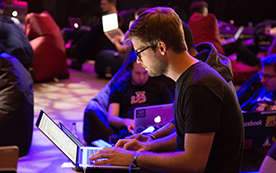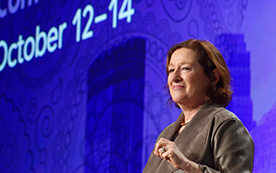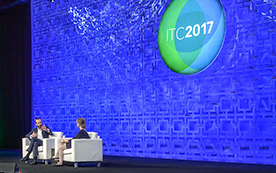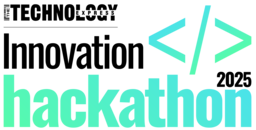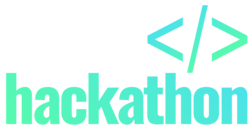
Hackathon Myths Debunked: Why Anyone Can Join Innovation Hackathon 2025
Myth 1: Hackathons Require Advanced Programming Expertise
Reality: Diverse Skills Are Essential for Success
One of the most persistent misconceptions about hackathons is that participants must possess advanced coding abilities to contribute meaningfully. Modern hackathons actually prioritize multidisciplinary teams that combine technical skills with design thinking, business strategy, domain expertise, and creative problem-solving.
Successful teams typically include user experience designers who create intuitive interfaces, business analysts who validate market opportunities, subject matter experts who understand industry challenges, and creative thinkers who generate innovative approaches. These non-technical roles prove equally crucial to project success.
Many hackathon winners include team members with minimal programming experience who contributed through research, design, presentation development, user testing, or strategic planning. The collaborative nature of these events means that enthusiasm, creativity, and willingness to learn often matter more than existing technical expertise.
Myth 2: Only Elite Universities Produce Competitive Teams
Reality: Innovation Comes from Diverse Academic Backgrounds
Talent and creativity exist across all educational institutions, not just prestigious universities. Hackathon competitions regularly see winners from community colleges, regional universities, and international institutions competing successfully against teams from highly-ranked schools.
Judges evaluate projects based on innovation, execution quality, and practical impact rather than participants’ academic credentials. Simple, well-executed solutions often outperform complex projects that attempt to showcase technical sophistication without addressing core user needs.
The diverse perspectives that come from varied educational backgrounds often produce more innovative solutions than teams with homogeneous academic experiences. Students from different institutions bring unique insights, alternative approaches, and fresh perspectives that contribute to creative problem-solving.

Myth 3: Hackathon Outcomes Are Predetermined or Purely Competitive
Reality: Learning and Collaboration Define the Experience
While hackathons include competitive elements, the primary focus centers on learning, collaboration, and community building. Most participants value the educational experience, networking opportunities, and skill development more than winning specific prizes.
Many hackathons offer multiple award categories including technical excellence, creative design, social impact, and most promising business model. This diversity ensures that different types of contributions receive recognition, from innovative technical implementations to compelling user experiences to viable business strategies.
The collaborative atmosphere means teams regularly share resources, provide mutual assistance, and celebrate each other’s achievements. Mentors and organizers prioritize learning outcomes over competitive dynamics, creating supportive environments where participants help each other succeed.
Myth 4: Hackathon Projects Have No Real-World Applications
Reality: Many Projects Continue Beyond the Event
Hackathon projects frequently evolve into ongoing ventures, including startups, university research projects, open-source software contributions, and industry partnerships. The intensive development process often produces functional prototypes that demonstrate genuine market potential.
Companies and investors regularly attend hackathons specifically to identify promising projects and talented teams for potential partnerships or funding opportunities. Many successful startups trace their origins to hackathon participation, where founders first met, validated initial concepts, and developed minimum viable products.
Even projects that do not continue as commercial ventures provide valuable learning experiences, portfolio pieces, and a demonstration of practical skills that enhance academic and professional opportunities for participants.

Myth 5: Experience Level Determines Success Probability
Reality: Fresh Perspectives Often Generate Winning Solutions
Hackathon judges frequently recognize first-time participants for bringing innovative approaches unencumbered by conventional thinking or industry assumptions. Beginners often propose simple, elegant solutions that experienced developers might overlook in favor of more technically complex approaches.
The time constraints of hackathons actually favor straightforward implementations over sophisticated architectures. Teams that focus on solving core problems clearly and efficiently often outperform those that attempt to demonstrate advanced technical capabilities within compressed timelines.
Many hackathons specifically include categories for student participants or first-time competitors, recognizing that fresh perspectives and enthusiasm can produce remarkably creative solutions even without extensive technical experience.
The Inclusive Reality of Modern Hackathons
Innovation Hackathon 2025 exemplifies the inclusive approach that defines modern hackathon culture. The event welcomes students from all academic backgrounds, experience levels, and areas of interest across 10 diverse industry tracks, including Artificial Intelligence, Financial Technology, Healthcare, Sustainability, and Media and Entertainment.
This diversity ensures that every participant can find meaningful ways to contribute, whether through technical implementation, creative design, strategic thinking, or domain expertise. Teams that embrace this multidisciplinary approach consistently produce more innovative and practical solutions than those focused solely on technical capability.
The Path Forward
Rather than letting misconceptions prevent participation, students should view hackathons as accessible learning opportunities that complement traditional academic experiences. The collaborative environment, expert mentorship, and real-world challenge focus create ideal conditions for skill development and professional growth.
Innovation Hackathon 2025 provides a perfect entry point for students curious about technology innovation, entrepreneurship, or collaborative problem-solving. With structured mentorship, diverse challenge tracks, and emphasis on learning over competition, the event welcomes participants at all skill levels.
Ready to challenge assumptions and discover your innovation potential? Register now for Innovation Hackathon 2025 at Zayed University Dubai Campus, October 18-20. Join students from across the UAE in proving that hackathons truly welcome everyone ready to learn, collaborate, and create.
